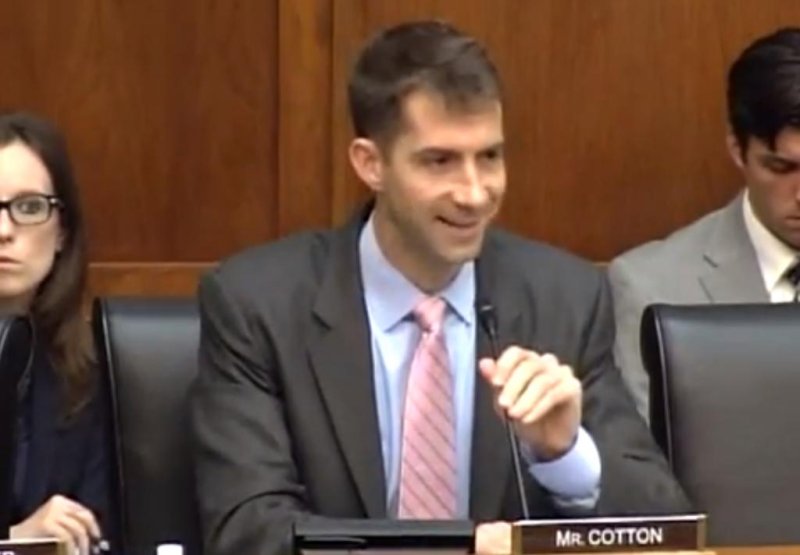U.S. Representative Tom Cotton (R-Ark.) attends a House Foreign Affairs Committee subcommittee hearing. (YouTube screenshot via
Rep. Tom Cotton)
Republican Representative Tom Cotton of Arkansas offered an amendment to the Nuclear Iran Prevention Act of 2013 which would "automatically" punish family members of people who violate U.S. sanctions against Iran with up to 20 years in prison.
“There would be no investigation,” Cotton said during the Wednesday hearing before the House Foreign Affairs Committee, reports the Huffington Post. "It'd be very hard to demonstrate and investigate to conclusive proof."
Cotton seeks to punish any family member of those people, “to include a spouse and any relative to the third degree,” including, “parents, children, aunts, uncles, nephews, nieces, grandparents, great grandparents, grandkids, great grandkids.”
The proposal drew immediate debate from members of the Foreign Affairs Committee. "An amendment is being offered literally to allow the sins of the uncles to descend on the nephews," said Florida's Democratic Rep. Alan Grayson. "I really question the constitutionality of a provision that punishes nephews for the sins of the uncles."
Article III of the Constitution explicitly bans Congress from punishing treason based on "corruption of blood" or family ties.
"Iranian citizens do not have constitutional rights under the United States Constitution," Cotton said. He warned that wrongdoers may shift financial assets to family members to avoid forfeiture. "I sympathize with their plight if they are harmless, innocent civilians in Iran. I doubt that that is often the case," Cotton said.
After some debate, Cotton ultimately withdrew the proposed amendment.
The Supreme Court found in 1896 that noncitizens charged with crimes are protected by the Fifth Amendment, which guarantees due process, along with the Sixth and 14th Amendments.







